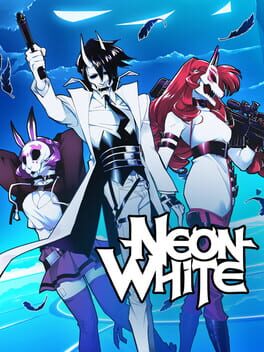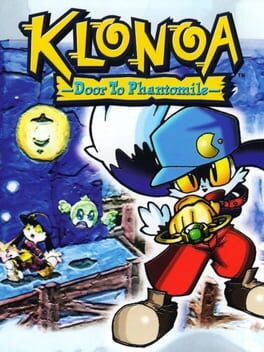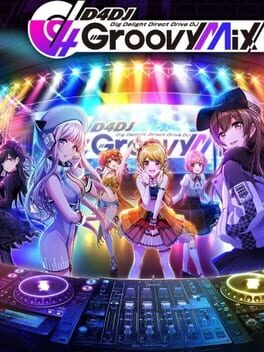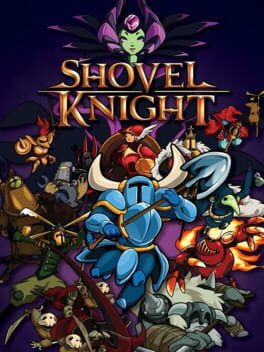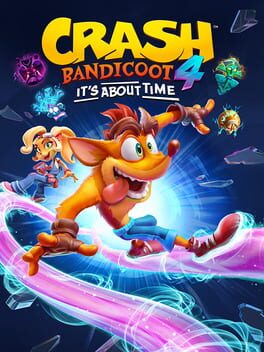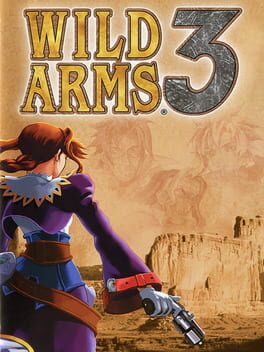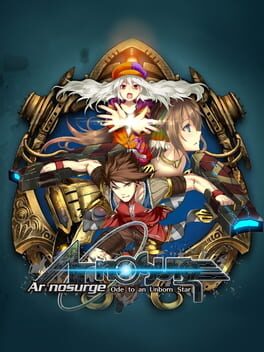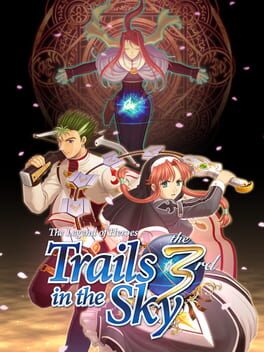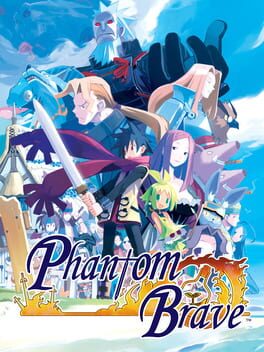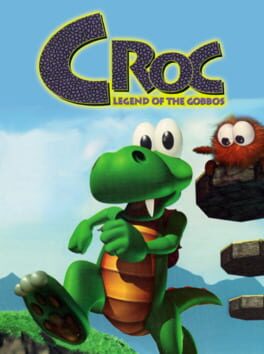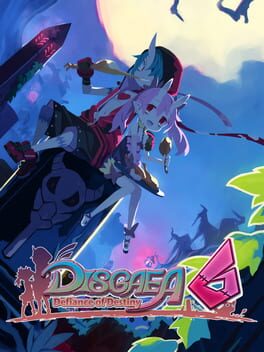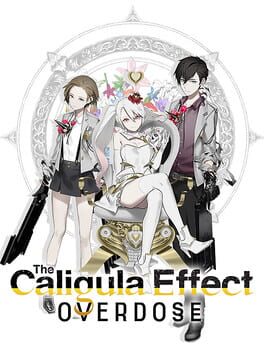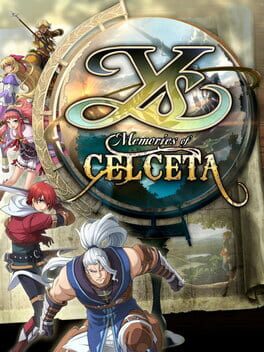moogy
2022
2020
As a rhythm game, I honestly think D4DJ is on par with the best offerings from the Bemani franchise. Its core mechanics are refined, intuitive, and kinetic, and its chart design is rock solid almost across the board.
At the same time, it leans so hard into being a serious rhythm game that it has neglected elements which could expose it to a wider audience. There are no 3D models or MVs of any sort, and while the original songs are fantastic, the soundtrack as a whole lacks any sort of cohesion or theming due to the sheer number of songs they've crammed into the game. And while this is obviously more subjective, I just don't find the scenario that exciting; I'm loath to directly compare the two games, but I've felt compelled to read every map conversation in Project Sekai, while I've ignored this element of D4DJ almost entirely. I think that's a telling enough anecdote. That said, the anime for D4DJ is legitimately pretty great and I would definitely recommend watching it before the game for context on the characters if nothing else.
Anyway, that's all immaterial to why the game has me hooked, which is its fantastic rhythm action gameplay. The base mechanics are designed for a touchscreen device in a way that facilitates fun, not anguish. Slides and scratches are responsive in a way that flicks in some other games simply aren't, and an immutable five lanes for tap notes ensures that charts remain easy to parse and reasonable to play with two fingers. Above all else, the chart design is simply top notch. The charters really know how to use the gimmicks available to them to draw out the rhythm of a song without just spamming as many notes as possible. It really feels like you're actually playing along with the music, something that a great many rhythm games have a surprising amount of difficulty realizing. Of particular note (heh) are the charts by Subatos; if you see him credited for a chart, you know you're getting an absolute banger, something that will really draw out the appeal of the song regardless of the difficulty level.
There are also a number of great QoL features that make it easier to focus on what matters, playing the game. You can customize basically every aspect of the playing field, not just note speed. Want the lanes to be wider? Sure. Want to alter the length of the playing field itself? Sure. You can even mess with more obscure facets of the play experience, like the exact opacity of upcoming notes during backspin segments. And while the fact that you have to pay a monthly subscription to access it is pretty questionable, I appreciate that there's a higher tier of judgment (Just Perfects, they have a 30ms window) available for players who really want to master the game and improve their timing. It comes with a fast/slow display during gameplay and on the results screen for good measure.
There might be better games on the market if you're primarily interested in the "anime girls" part (and I say that with love), but I can't recommend D4DJ enough if you want a polished, robust rhythm game experience that utilizes touchscreen input in engaging ways.
Disclaimer: I am F2P as far as gacha goes, though I do pay 500 yen a month for the monthly pass that allows access to the advanced judgment system and unlocks all of the songs. I have extremely good gacha luck in this game, though... I think I have a full set of 4 stars for every group at this point, in addition to one of the busted anniversary cards (apparently these are internally referred to as 7 stars, which is pretty hilarious), and I'm not really interested in extreme score grinding, so I don't have much to say about the RPG/gacha elements, sorry.
Also, for the curious, the game silently runs at 120hz on Android devices that support it, much like prsk.
At the same time, it leans so hard into being a serious rhythm game that it has neglected elements which could expose it to a wider audience. There are no 3D models or MVs of any sort, and while the original songs are fantastic, the soundtrack as a whole lacks any sort of cohesion or theming due to the sheer number of songs they've crammed into the game. And while this is obviously more subjective, I just don't find the scenario that exciting; I'm loath to directly compare the two games, but I've felt compelled to read every map conversation in Project Sekai, while I've ignored this element of D4DJ almost entirely. I think that's a telling enough anecdote. That said, the anime for D4DJ is legitimately pretty great and I would definitely recommend watching it before the game for context on the characters if nothing else.
Anyway, that's all immaterial to why the game has me hooked, which is its fantastic rhythm action gameplay. The base mechanics are designed for a touchscreen device in a way that facilitates fun, not anguish. Slides and scratches are responsive in a way that flicks in some other games simply aren't, and an immutable five lanes for tap notes ensures that charts remain easy to parse and reasonable to play with two fingers. Above all else, the chart design is simply top notch. The charters really know how to use the gimmicks available to them to draw out the rhythm of a song without just spamming as many notes as possible. It really feels like you're actually playing along with the music, something that a great many rhythm games have a surprising amount of difficulty realizing. Of particular note (heh) are the charts by Subatos; if you see him credited for a chart, you know you're getting an absolute banger, something that will really draw out the appeal of the song regardless of the difficulty level.
There are also a number of great QoL features that make it easier to focus on what matters, playing the game. You can customize basically every aspect of the playing field, not just note speed. Want the lanes to be wider? Sure. Want to alter the length of the playing field itself? Sure. You can even mess with more obscure facets of the play experience, like the exact opacity of upcoming notes during backspin segments. And while the fact that you have to pay a monthly subscription to access it is pretty questionable, I appreciate that there's a higher tier of judgment (Just Perfects, they have a 30ms window) available for players who really want to master the game and improve their timing. It comes with a fast/slow display during gameplay and on the results screen for good measure.
There might be better games on the market if you're primarily interested in the "anime girls" part (and I say that with love), but I can't recommend D4DJ enough if you want a polished, robust rhythm game experience that utilizes touchscreen input in engaging ways.
Disclaimer: I am F2P as far as gacha goes, though I do pay 500 yen a month for the monthly pass that allows access to the advanced judgment system and unlocks all of the songs. I have extremely good gacha luck in this game, though... I think I have a full set of 4 stars for every group at this point, in addition to one of the busted anniversary cards (apparently these are internally referred to as 7 stars, which is pretty hilarious), and I'm not really interested in extreme score grinding, so I don't have much to say about the RPG/gacha elements, sorry.
Also, for the curious, the game silently runs at 120hz on Android devices that support it, much like prsk.
2018
2014
Perhaps surprisingly, I actually enjoyed this more than the original game. What the world loses in interconnectedness it makes up for in sheer content; I had much more fun exploring DS2 simply because there was more of it to explore. The general aesthetic also appealed to me a lot more; in particular, Majula does a much better job of selling that the world is still inhabited than DS1's hub did, which is a complaint I had with that game while playing it. And while it's true that most of DS2's bosses are... lacking, it's not like every boss in DS1 was a winner either, and the DLCs go a long way in making up for this. Fume Knight, for example, I found way more challenging and fun than any DS1 boss. Overall I feel like this game actually improves on the original in many ways and is unfairly maligned.
2002
The gameplay and cutscene presentation are both pretty atrocious. Anyone who says that the earlier Wild ARMs games have good dungeon design probably hasn't actually played them since they came out; while they certainly try to do interesting things, most of the "puzzles" are either braindead easy or just kind of annoying. The Millennium Puzzles in WA3 are a decent idea conceptually (sokoban using the Z axis), but really really suck to actually play due to a complete lack of QOL features. Combat is more interesting than WA2 but really wears out its welcome by the end and rarely demands the player actually use its systems in interesting ways.
All that said, WA3 has one of the best plots of any video game and an incredible soundtrack to accompany it, so even replaying the game in 2021 I came away with positive thoughts about it. I would rate it higher if the characters themselves were more... vibrant. Only Maya really left an impression.
All that said, WA3 has one of the best plots of any video game and an incredible soundtrack to accompany it, so even replaying the game in 2021 I came away with positive thoughts about it. I would rate it higher if the characters themselves were more... vibrant. Only Maya really left an impression.
2004
As a game, it's a terrible mess. It's impossible not to notice just how low budget it was, and while the battle system is interesting on a conceptual level, the way it's implemented and balanced makes the game incredibly unfun to play.
The main story is also kind of haphazard, and wouldn't be very satisfying on its own. It's fortunate, then, that the character scenarios (the social link equivalents) are all quite thoughtful and (mostly) competently told. Every character is interesting and memorable, with motivations and backstories that are quite bit more down-to-earth than you would expect from a JRPG. The game also treats difficult social issues with a degree of nuance, acknowledging that no one's problems are going to magically be solved by the end of the game; even some problematic elements from early in the story are reexamined and overcome later on. My only real complaint with the character scenarios is that it's pretty clear they ran out of time/money with the last few characters on the "villain" side of things.
If you want a glimpse of what modern Persona could be if the writing actually reflected the real world, please give Caligula a try. Just don't expect it to be a good game, because it's not.
Also, the soundtrack is great, especially if you're a Vocaloid fan.
The main story is also kind of haphazard, and wouldn't be very satisfying on its own. It's fortunate, then, that the character scenarios (the social link equivalents) are all quite thoughtful and (mostly) competently told. Every character is interesting and memorable, with motivations and backstories that are quite bit more down-to-earth than you would expect from a JRPG. The game also treats difficult social issues with a degree of nuance, acknowledging that no one's problems are going to magically be solved by the end of the game; even some problematic elements from early in the story are reexamined and overcome later on. My only real complaint with the character scenarios is that it's pretty clear they ran out of time/money with the last few characters on the "villain" side of things.
If you want a glimpse of what modern Persona could be if the writing actually reflected the real world, please give Caligula a try. Just don't expect it to be a good game, because it's not.
Also, the soundtrack is great, especially if you're a Vocaloid fan.
